-
 bitcoin
bitcoin $87959.907984 USD
1.34% -
 ethereum
ethereum $2920.497338 USD
3.04% -
 tether
tether $0.999775 USD
0.00% -
 xrp
xrp $2.237324 USD
8.12% -
 bnb
bnb $860.243768 USD
0.90% -
 solana
solana $138.089498 USD
5.43% -
 usd-coin
usd-coin $0.999807 USD
0.01% -
 tron
tron $0.272801 USD
-1.53% -
 dogecoin
dogecoin $0.150904 USD
2.96% -
 cardano
cardano $0.421635 USD
1.97% -
 hyperliquid
hyperliquid $32.152445 USD
2.23% -
 bitcoin-cash
bitcoin-cash $533.301069 USD
-1.94% -
 chainlink
chainlink $12.953417 USD
2.68% -
 unus-sed-leo
unus-sed-leo $9.535951 USD
0.73% -
 zcash
zcash $521.483386 USD
-2.87%
Does USDT transaction require a handling fee? What is the fee rate?
USDT transaction fees vary by network: Tron (TRC-20) at 0.01 USDT, Ethereum (ERC-20) at 0.5-5 USDT, and Omni (OMNI) at 0.00001 BTC, with platform fees also affecting costs.
May 11, 2025 at 05:29 am
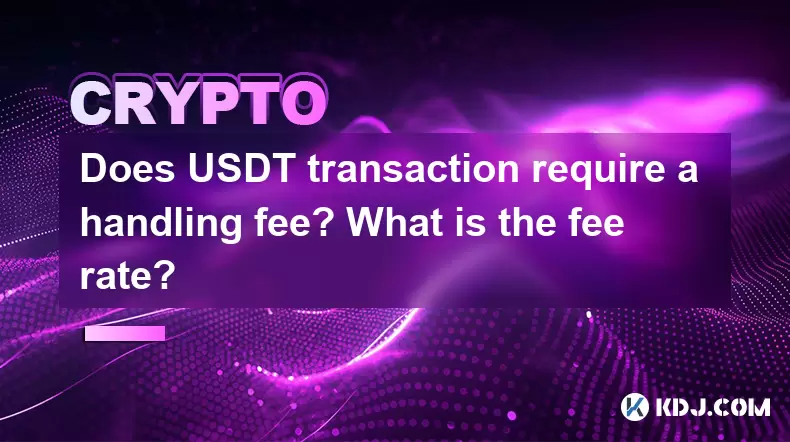
Introduction to USDT Transactions
Tether (USDT) is a popular stablecoin that is pegged to the value of the US dollar, making it a widely used cryptocurrency for trading and transactions. When engaging in USDT transactions, one of the key considerations for users is the handling fee associated with these transactions. This article delves into the specifics of USDT transaction fees, exploring the fee structures across different platforms and the factors that influence these fees.
Understanding USDT Transaction Fees
USDT transaction fees are charges imposed by the platforms or networks through which the transactions are processed. These fees can vary depending on several factors, including the type of transaction, the platform used, and the blockchain network on which the USDT is issued. It's important for users to understand these fees to effectively manage their transactions and minimize costs.
Types of USDT and Their Fee Structures
USDT can be issued on multiple blockchains, including Tron (TRC-20), Ethereum (ERC-20), and Omni (OMNI). Each of these networks has its own fee structure, which affects the cost of USDT transactions.
Tron (TRC-20): Transactions on the Tron network are generally known for their low fees. The average fee for a TRC-20 USDT transaction is around 0.01 USDT. This makes Tron a preferred choice for users looking to minimize transaction costs.
Ethereum (ERC-20): The Ethereum network, on the other hand, can have higher fees, especially during periods of high network congestion. The average fee for an ERC-20 USDT transaction can range from 0.5 to 5 USDT, depending on the gas price and network traffic.
Omni (OMNI): The Omni network, which uses the Bitcoin blockchain, typically has higher fees than Tron but lower than Ethereum. The average fee for an OMNI USDT transaction is around 0.00001 BTC, which can be converted to USDT based on the current exchange rate.
Platform-Specific Fees
In addition to the network fees, various cryptocurrency exchanges and wallets may impose their own fees for USDT transactions. These fees can vary widely between platforms, so it's crucial for users to check the fee structure of their chosen platform.
Binance: Binance, one of the largest cryptocurrency exchanges, charges a 0.1% trading fee for USDT transactions. However, users can reduce this fee by holding Binance Coin (BNB) or by achieving higher trading volumes.
Coinbase: Coinbase, a popular platform for USDT transactions, charges a fee that can range from 0.5% to 4.5%, depending on the transaction size and payment method.
Kraken: Kraken's fees for USDT transactions are typically around 0.16% to 0.26%, with the exact fee depending on the user's 30-day trading volume.
Factors Influencing USDT Transaction Fees
Several factors can influence the fees associated with USDT transactions. Understanding these factors can help users make informed decisions and potentially save on transaction costs.
Network Congestion: During times of high network activity, fees can increase significantly, particularly on the Ethereum network. Users may need to pay higher fees to ensure their transactions are processed quickly.
Transaction Size: Larger transactions may incur higher fees, especially on platforms that use a percentage-based fee structure.
Type of Transaction: Different types of transactions, such as transfers versus trades, can have different fee structures. For example, trading USDT on an exchange might have different fees compared to transferring USDT to another wallet.
Platform Policies: Each platform has its own fee policies, which can be influenced by factors such as user loyalty programs, promotional offers, and the platform's operational costs.
How to Minimize USDT Transaction Fees
There are several strategies that users can employ to minimize the fees associated with USDT transactions.
Choose the Right Network: Opting for the Tron network (TRC-20) can significantly reduce transaction fees compared to using the Ethereum network (ERC-20).
Use Fee Discounts: Many platforms offer fee discounts for users who hold specific tokens or achieve certain trading volumes. For example, holding BNB on Binance can reduce trading fees.
Batch Transactions: Instead of making multiple small transactions, users can batch their transactions to reduce the overall fee cost.
Timing Transactions: Avoiding peak times of network congestion can help in securing lower fees, especially on networks like Ethereum.
Frequently Asked Questions
Q: Can I avoid paying fees for USDT transactions altogether?A: It is generally not possible to avoid paying fees entirely, as these fees are necessary to process transactions on the blockchain and cover platform operational costs. However, by choosing the right network and platform, and employing strategies to minimize fees, users can significantly reduce their costs.
Q: Do all platforms charge the same fee for USDT transactions?A: No, different platforms have different fee structures for USDT transactions. Fees can vary based on the platform's policies, the type of transaction, and the user's trading volume or loyalty status.
Q: How can I find out the exact fee for a USDT transaction before I make it?A: Most platforms provide a fee calculator or display the estimated fee before you confirm the transaction. Users should always check the fee details before proceeding with any transaction to avoid unexpected costs.
Q: Are there any hidden fees I should be aware of when transacting with USDT?A: While most platforms are transparent about their fee structures, users should be aware of potential withdrawal fees, network fees, and any additional charges for specific types of transactions. Always review the platform's fee policy to ensure you understand all potential costs.
Disclaimer:info@kdj.com
The information provided is not trading advice. kdj.com does not assume any responsibility for any investments made based on the information provided in this article. Cryptocurrencies are highly volatile and it is highly recommended that you invest with caution after thorough research!
If you believe that the content used on this website infringes your copyright, please contact us immediately (info@kdj.com) and we will delete it promptly.
- Ripple, Banks, & Cash: The Digital Treasury Revolution and Washington's New Blueprint
- 2026-01-31 22:40:02
- Bitcoin's High-Wire Act: Leverage Ratio Spikes, Volatility Looms on the Horizon
- 2026-01-31 22:20:02
- Spur Protocol's SON Token: A Listing Saga and Its Murky Price Outlook
- 2026-01-31 22:15:04
- Bitcoin Price Breakdown Looms as Institutions Pull Billions: BTC Faces Critical Juncture
- 2026-01-31 22:10:07
- Tria Airdrop's Second Act: Season 2 Kicks Off, XP Details Unveiled
- 2026-01-31 22:05:08
- Silver Liquidation Raised Eyebrows: What Happened, and What It Means
- 2026-01-31 22:00:07
Related knowledge
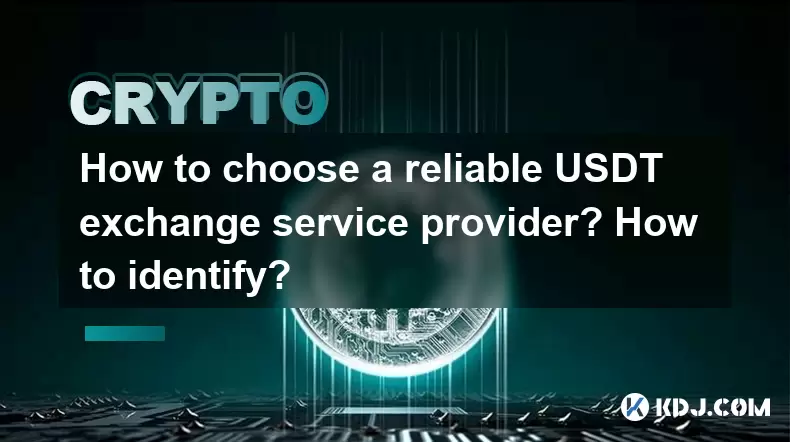
How to choose a reliable USDT exchange service provider? How to identify?
Jun 12,2025 at 03:15pm
Understanding the Role of USDT in Cryptocurrency TradingUSDT (Tether) is one of the most widely used stablecoins in the cryptocurrency market. It is d...
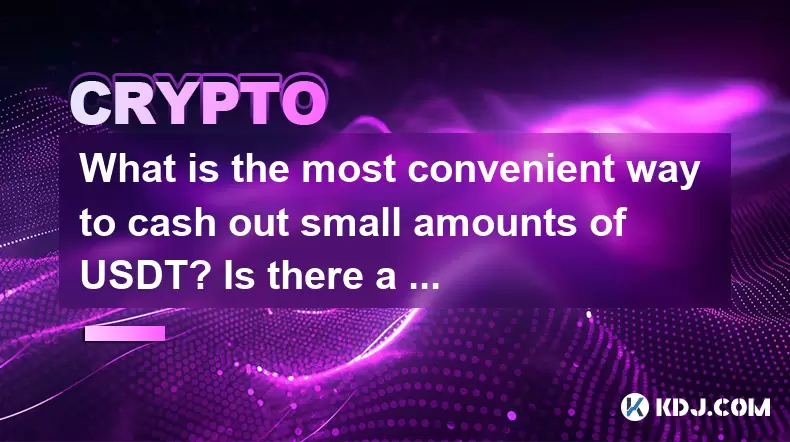
What is the most convenient way to cash out small amounts of USDT? Is there a shortcut?
Jun 11,2025 at 11:00pm
Understanding the Need to Cash Out Small USDT AmountsCashing out small amounts of USDT can be a challenge for many crypto users. Traditional methods o...
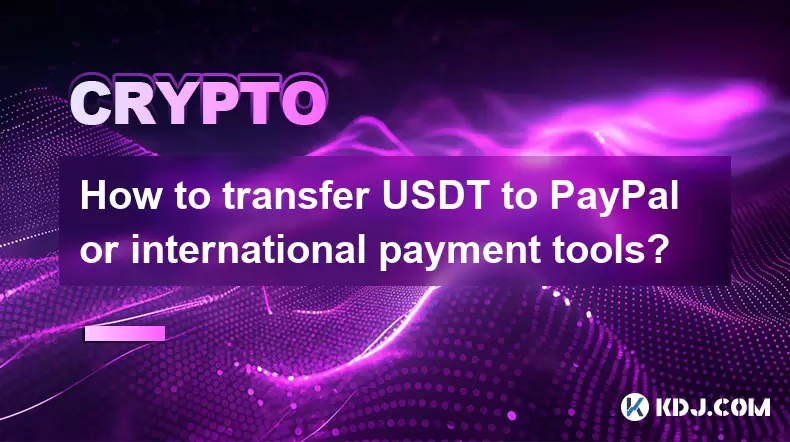
How to transfer USDT to PayPal or international payment tools?
Jun 15,2025 at 05:28am
Understanding the Basics of USDT and PayPal IntegrationUSDT (Tether) is a stablecoin pegged to the US dollar, offering blockchain-based value transfer...
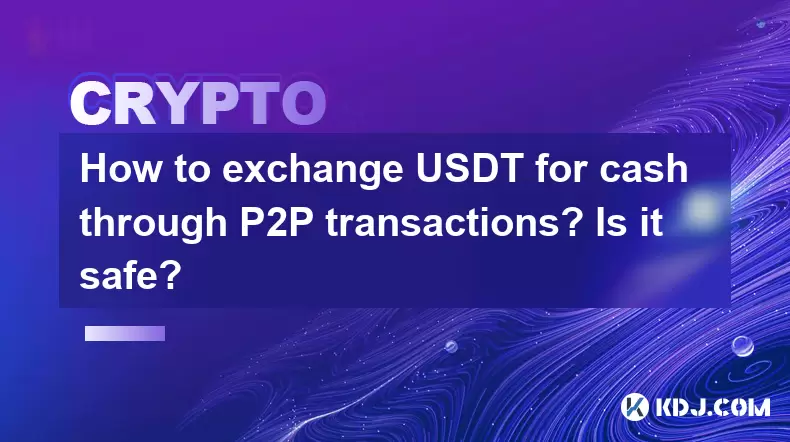
How to exchange USDT for cash through P2P transactions? Is it safe?
Jun 18,2025 at 07:56am
Understanding USDT and P2P TransactionsTether (USDT) is a stablecoin pegged to the value of the US dollar, making it a popular choice for users who wa...
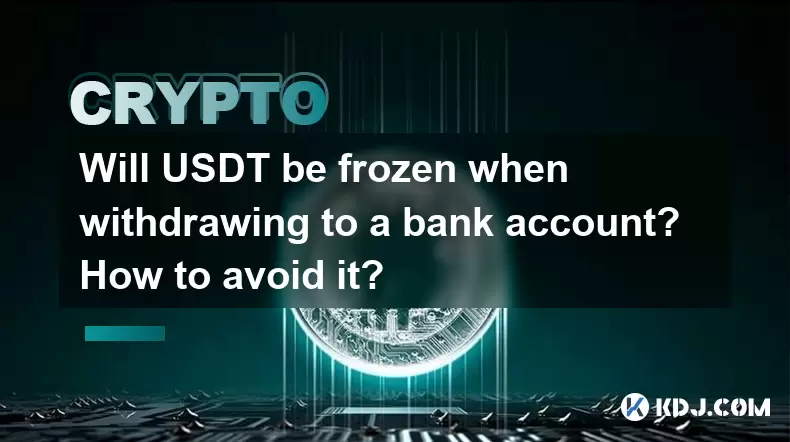
Will USDT be frozen when withdrawing to a bank account? How to avoid it?
Jun 15,2025 at 10:03am
Understanding USDT Withdrawals and Bank Account Freezing RisksWhen users decide to withdraw USDT (Tether) to a bank account, one of the most common co...

How to avoid risks when exchanging USDT for cash? What are the pitfalls?
Jun 11,2025 at 08:14pm
Understanding the Risks of Exchanging USDT for CashWhen exchanging USDT (Tether) for cash, users must be aware of the potential risks involved. As a s...

How to choose a reliable USDT exchange service provider? How to identify?
Jun 12,2025 at 03:15pm
Understanding the Role of USDT in Cryptocurrency TradingUSDT (Tether) is one of the most widely used stablecoins in the cryptocurrency market. It is d...

What is the most convenient way to cash out small amounts of USDT? Is there a shortcut?
Jun 11,2025 at 11:00pm
Understanding the Need to Cash Out Small USDT AmountsCashing out small amounts of USDT can be a challenge for many crypto users. Traditional methods o...

How to transfer USDT to PayPal or international payment tools?
Jun 15,2025 at 05:28am
Understanding the Basics of USDT and PayPal IntegrationUSDT (Tether) is a stablecoin pegged to the US dollar, offering blockchain-based value transfer...

How to exchange USDT for cash through P2P transactions? Is it safe?
Jun 18,2025 at 07:56am
Understanding USDT and P2P TransactionsTether (USDT) is a stablecoin pegged to the value of the US dollar, making it a popular choice for users who wa...

Will USDT be frozen when withdrawing to a bank account? How to avoid it?
Jun 15,2025 at 10:03am
Understanding USDT Withdrawals and Bank Account Freezing RisksWhen users decide to withdraw USDT (Tether) to a bank account, one of the most common co...

How to avoid risks when exchanging USDT for cash? What are the pitfalls?
Jun 11,2025 at 08:14pm
Understanding the Risks of Exchanging USDT for CashWhen exchanging USDT (Tether) for cash, users must be aware of the potential risks involved. As a s...
See all articles





















![Ultra Paracosm by IlIRuLaSIlI [3 coin] | Easy demon | Geometry dash Ultra Paracosm by IlIRuLaSIlI [3 coin] | Easy demon | Geometry dash](/uploads/2026/01/31/cryptocurrencies-news/videos/origin_697d592372464_image_500_375.webp)




















































